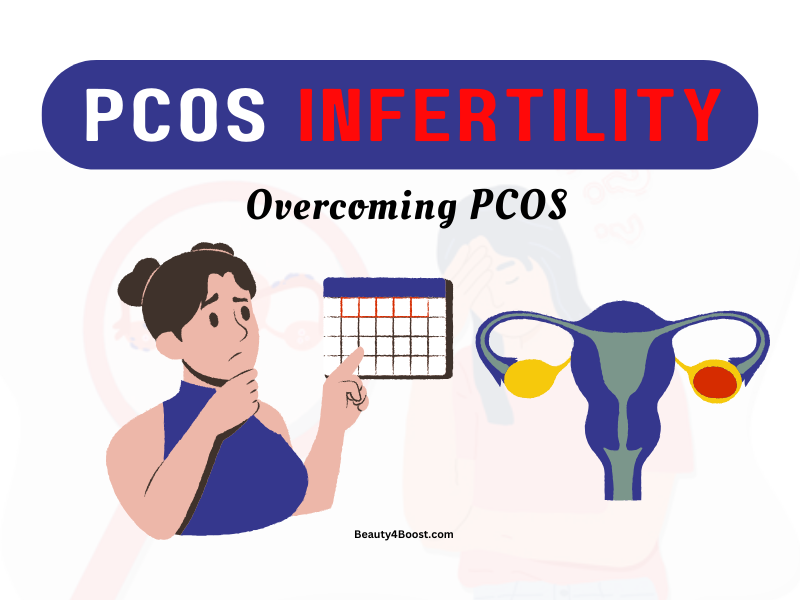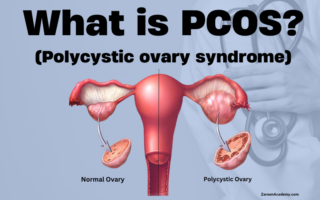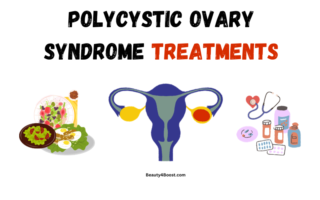Introduction
PCOS infertility is a daunting challenge that affects many women worldwide. Polycystic Ovary Syndrome (PCOS) is a hormonal disorder that can lead to irregular periods, ovarian cysts, and difficulties in conceiving. In this informative article, we will explore the intricacies of PCOS infertility, offering insights, advice, and strategies to help women navigate this challenging journey.
PCOS Infertility: A Closer Look
Polycystic Ovary Syndrome (PCOS) is a complex hormonal disorder that affects the ovaries. It’s characterized by irregular menstrual cycles, high levels of androgens (male hormones), and the development of small cysts in the ovaries.
The Link Between PCOS and Infertility
The link between Polycystic Ovary Syndrome (PCOS) and infertility is a well-established and complex relationship that affects many women of reproductive age. PCOS is a hormonal disorder characterized by irregular menstrual cycles, elevated levels of androgens (male hormones), and the presence of small cysts on the ovaries. These hormonal imbalances and irregular ovulation cycles are at the core of the fertility challenges experienced by individuals with PCOS. In many cases, women with PCOS may have infrequent or absent ovulation, which is a key factor in infertility. Without regular ovulation, the release of mature eggs necessary for fertilization is disrupted, making it difficult to conceive naturally.
In addition to irregular ovulation, PCOS is associated with other factors that can impact fertility, including insulin resistance and obesity. Insulin resistance can lead to high levels of insulin in the body, which, in turn, can stimulate the ovaries to produce excess androgens and disrupt normal ovulation. Furthermore, the increased prevalence of obesity among individuals with PCOS exacerbates the condition and can complicate fertility.
Addressing the link between PCOS and infertility often involves a combination of lifestyle changes, such as weight management and dietary modifications, along with medical interventions like ovulation-inducing medications and assisted reproductive technologies. While PCOS-related infertility can present significant challenges, many women with the condition can achieve successful pregnancies with appropriate treatment and support from healthcare professionals.
PCOS is a leading cause of female infertility. The hormonal imbalances in PCOS disrupt the normal ovulation process, making it difficult for women to conceive.
Common Symptoms
Irregular Menstrual Cycles: PCOS often leads to unpredictable periods, which can make tracking ovulation challenging.
Ovulatory Dysfunction: Anovulation, or the lack of ovulation, is common in PCOS.
High Androgen Levels: Elevated male hormones can cause acne, excess facial and body hair, and weight gain.
Diagnosing PCOS
Diagnosing PCOS typically involves a physical examination, blood tests, and an ultrasound to check for cysts on the ovaries.
Treatment Options
Lifestyle Changes: Maintaining a healthy weight through diet and exercise can improve symptoms.
Medications: Hormonal birth control and metformin can help regulate menstrual cycles.
Fertility Treatments: Clomiphene and assisted reproductive technologies like IVF can assist in achieving pregnancy.
Strategies to Overcome PCOS Infertility
Diet and Exercise
A well-balanced diet and regular exercise play a crucial role in managing PCOS. Reducing sugar and refined carbohydrates can help regulate insulin levels, which, in turn, can improve fertility.
Stress Management
High stress levels can exacerbate PCOS symptoms and hinder conception. Techniques such as yoga, meditation, and deep breathing exercises can help manage stress.
Medications
Fertility medications can stimulate ovulation. Consult a healthcare provider to determine the most suitable medication for your unique situation.
Lifestyle Adjustments
Lifestyle changes, such as quitting smoking and limiting alcohol consumption, can enhance fertility.
Support Groups
Joining a support group or seeking counseling can provide emotional support during the PCOS infertility journey.
Alternative Therapies
Some women with PCOS find relief through acupuncture or herbal remedies. Always consult with a healthcare provider before trying alternative therapies.
PCOS Infertility FAQs
Q: Can I get pregnant if I have PCOS?
A: Yes, with proper medical treatment and lifestyle changes, many women with PCOS can successfully conceive.
Q: Is PCOS infertility a lifelong condition?
A: While PCOS is a lifelong condition, its symptoms can be managed effectively.
Q: What are the chances of getting pregnant with PCOS?
A: The chances of getting pregnant with PCOS depend on the individual and the severity of their condition. Fertility treatments can significantly improve the odds.
Q: Are there natural remedies for PCOS infertility?
A: Lifestyle changes, such as diet, exercise, and stress management, can be considered natural remedies. However, consulting a healthcare provider is crucial.
Q: How can I track ovulation with irregular periods?
A: Ovulation prediction kits and monitoring cervical mucus changes can help women with irregular periods track their fertile days.
Q: Is PCOS infertility hereditary?
A: PCOS may have a genetic component, so there is a higher risk if close family members have the condition.
Conclusion
PCOS infertility is a challenging condition, but it is not insurmountable. By understanding the disorder, seeking medical advice, making lifestyle changes, and exploring fertility treatments, women with PCOS can increase their chances of conceiving. Remember, every individual’s journey is unique, and there is hope for a fulfilling family life despite PCOS.




